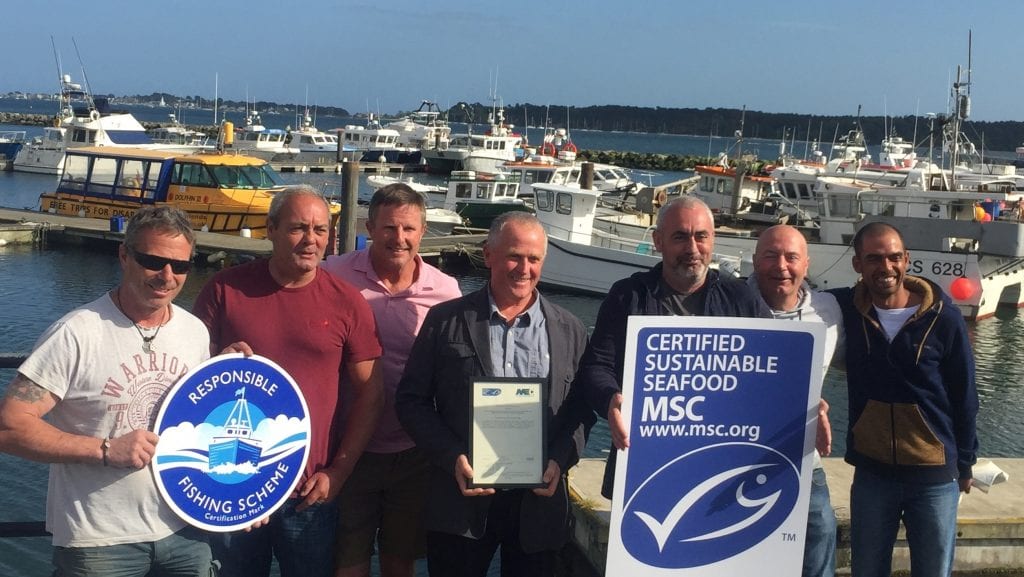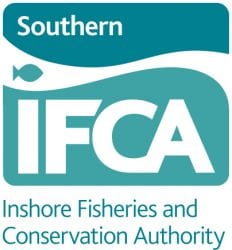
Local fishermen in Poole after receiving sustainability accreditation.
SUMMARY

The New Economics Foundation’s (NEF) Blue New Deal set out a vision for revitalising coastal communities and protecting the natural resources they depend on. Balancing the economic and social needs of communities with the sustainability of the marine environment is a key challenge: the goal being to ensure that both environments return to prosperity and become resilient.
NEF Consulting, together with NEF, conducted research for the Southern Inshore Fisheries and Conservation Authority (Southern IFCA) highlighting the contribution of the three primary direct marine sectors (commercial fishing, aquaculture and charter boat trips) to the local economy of Poole, Dorset. The research aims to better understand the challenges and opportunities facing the marine sector.
KEY FINDINGS
Our research found the three sectors of Poole’s marine economy generate between them over £12.5 million in economic activity. This included:
- £2.6 million total for aquaculture.
- £4.2 million for commercial fisheries.
- £5.7 million for the charter boat fleet.
OUR APPROACH
To estimate the GVA for aquaculture harvesting in Poole Harbour, a model was used that had been previously developed by NEF Consulting to calculate economic activity from harvesting shellfish in the Solent.
To calculate the local economic impact of commercial fishing, an average price for each species caught, and the average landing size were required. This information was taken from MMO annual sea fisheries statistics or using Southern IFCA data where that was known to be more accurate, e.g. in the case of manila clam landings.
Further information was captured during June and July 2018, through interviews conducted with fishers and recreational charter boat skippers, local seafood buyers, merchants and wholesalers. They were asked a variety of questions, around which to base their assumptions, when calculating their respective local economic impacts. The information gathered informed the modelling of local economic impacts.
NEXT STEPS
Despite this significant contribution to the economy of Poole, there are both threats and opportunities that decision-makers must consider (at both national government and local authority level), to ensure that these sectors maintain (or even increase) their contribution, without jeopardising the health of the marine environment.
Clear opportunities exist for the small scale fishing fleet: by improving the local supply chain through markets on Poole Quay; through local authorities signing up to be Sustainable Fish Cities; and by publicising the success of the recent Marine Stewardship Council (MSC) accreditation for Poole Harbour.
For the charter fleet, an opportunity exists for the council and tourist board to develop a charter angling strategy and a best-practice code of conduct that involves local operators and regulators.
For aquaculture and the shellfish fishery in the harbour, the Poole Harbour Fishery Order 2015 enables a re-laying model for fattening shellfish and matching supply to demand. This ensures seasonal stability and access to markets throughout the year, as well as providing an opportunity to improve price, and provide stability of supply rather than gluts, while increasing the spawning stock within the harbour for clams and cockles.
